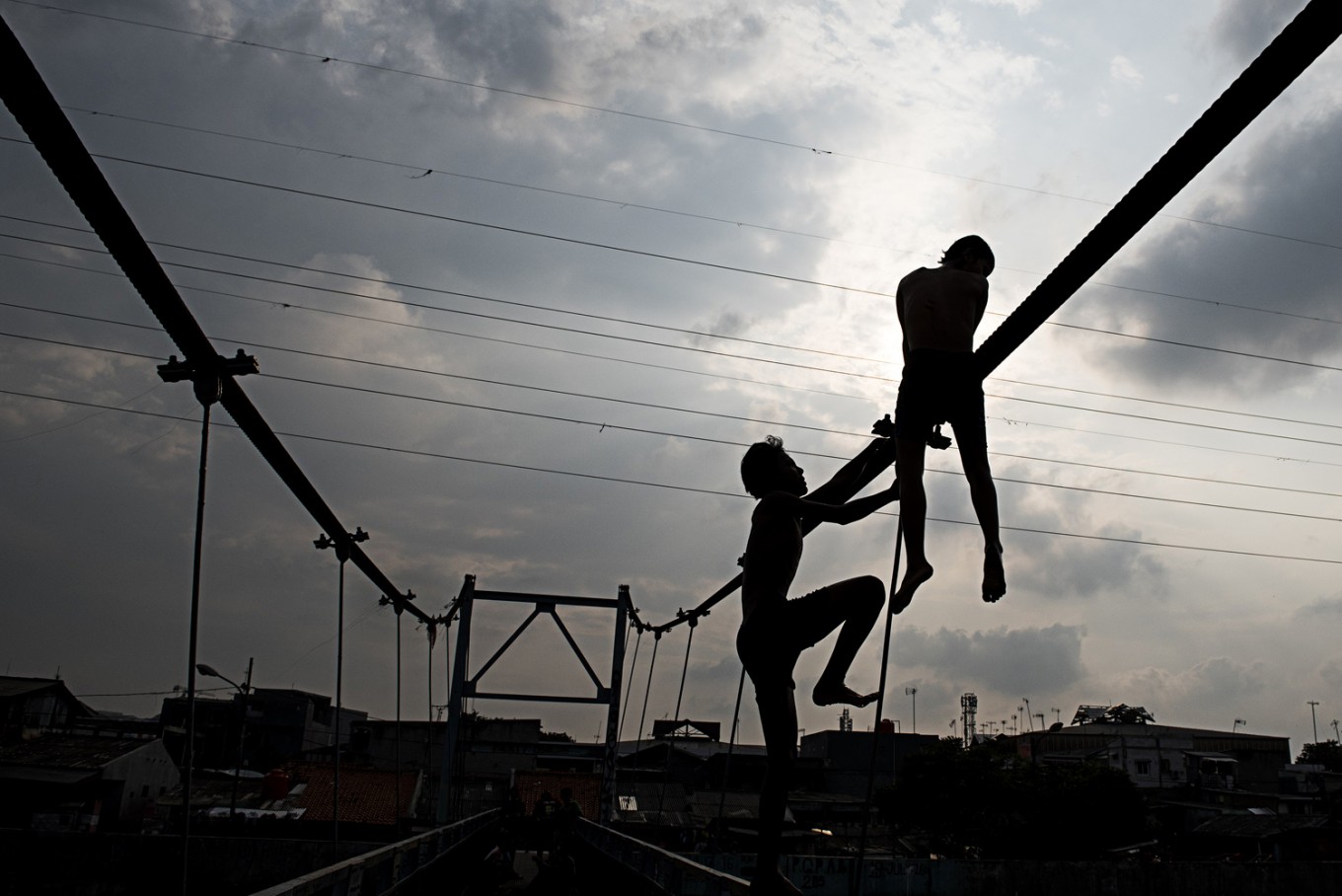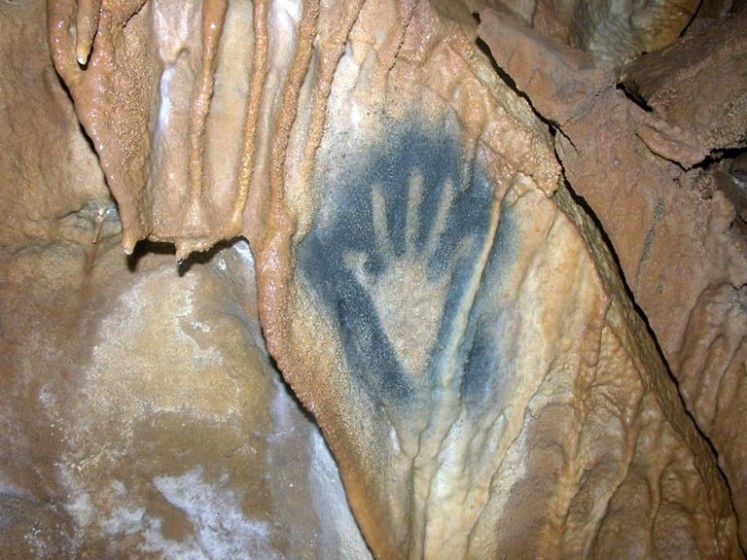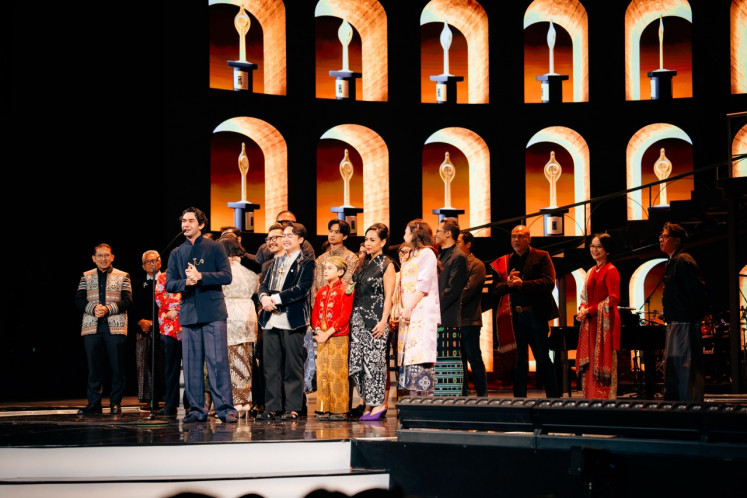Popular Reads
Top Results
Can't find what you're looking for?
View all search resultsPopular Reads
Top Results
Can't find what you're looking for?
View all search resultsEssay: Childhood memories
The idea of a childhood sense of wonder has become salient again to me recently while I was on a reporting trip to the United Arab Emirates.
Change text size
Gift Premium Articles
to Anyone
I
was reading Egyptian novelist Ahdaf Soueif’s short story collection Aisha ( 1983 ) and was suddenly transported back, almost 20 years through the first-person narration of the titular character, to growing up as a kid between Egypt and England.
Through the stories, I remember fondly the memories of playing games of snakes and ladders, eating snacks and sweets, as well as Christmas presents. But I also remember the overall sense of wonder as a child, when we easily became excited by engaging in our, now seemingly mundane, daily activities.
The idea of a childhood sense of wonder has become salient again to me recently while I was on a reporting trip to the United Arab Emirates.
My arrival felt quite surreal: I reached the city of Abu Dhabi in the wee hours of the morning after a nine-hour flight. As the taxi driver approached my hotel, near the city’s national exhibition center, I was enveloped by majestic buildings: tall and wide hotels and business centers surrounding me. Jakarta also has tall buildings, but they are not as wide as these ones. The metropolis looks so modern.
My amazement reminds me of a short story that I read in the children’s magazine Bobo back in 1997, when I was around eight years old living in a small village in West Java. I related instantly to the protagonist, a young boy from a small village who went on a trip to Singapore after winning a short story competition.
The most interesting part of the story was the boy’s sense of amazement upon setting foot in the luxurious city-state, with its posh hotels and shopping malls. My late grandparents took me to Singapore in 2001, and this young village boy was so astonished by its hotels and shopping malls and the nicely-paved Orchard Road that my grandparents teased me: “Oh, Ogi, stop being such a hillbilly!”
Now, 17 years later, on a solo trip to Abu Dhabi, I felt the same way again. Upon arrival, I felt the same full technicolor excitement that I had as a kid. Feeling sleepy inside the taxi, suddenly I saw, among these enormous skyscrapers, a hotel called Premier Inn, with its logo of a crescent moon bearing a human face, falling peacefully and deeply asleep, emitting stars out of its mouth — symbolizing our tendency to snore, of course.
While providing me comfort by reminding me that soon I would also go into deep, deep sleep in a wide and tall hotel that the taxi was approaching, the hotel’s logo also reminded me of childhood tales in which the moon was personified; it actually could sleep and snore, like human beings do.
Traveling solo could push me to get out of my comfort zone. I did not even know how to use the automatic coffee machines, for God’s sake (I had never seen or used one in all my life), so I had to stand back and watch other guests operate it because I was too embarrassed to ask them how the machine worked. Again, the main character from that children’s fiction I read in Bobomagazine came to mind. In the magazine’s short story, however, he did not know how to use an automatic vending machine.
Talking about childhood fantasies, I was eventually able to walk in the desert — a once in a lifetime experience that I had never wished for even in my wildest dreams. Since I was a kid, I had always wanted to go to the desert more than I wanted to venture out to those snowy mountains, particularly because I had been obsessed with the story about the Israelites’ 40-year suffering in the desert after escaping slavery under the Egyptian pharaoh. I walked here and there, watching sand dunes blow beautiful sand storms as bits of sand flew by and scattered on my face, in awe of nature’s majesty.
This, coupled with Aisha’s wild imagination — she often performs “stage plays” before her adoring family members — also reminded me of the potent power of childhood fantasy. Aisha’s childhood is not easy: she is often met with prejudice and rejection as an Egyptian studying in England. Mine has not been easy too: I was bullied at school for being a “pansy” while having to deal with family conflicts.
Against all odds, however, both Aisha and I managed to survive. Interestingly enough, the saving grace of the fictional character — presumably Soueif’s alter ego, since Soueif is also an Egyptian who went to study in England — is the same as mine: reading the story of the world.
Like Aisha, I also loved engaging in make-believe role plays, or what we call “stage plays” in sophisticated adult language. Sometimes I would assemble my nerdy classmates, write a script and perform a “drama” together. They willingly joined me in this game, interestingly enough.
Have no friends to play with? No problem. I would walk around my elementary school building, acting out a drama based on Mexican soap operas (yes, they were popular in the 1990s). I would give all the characters a fair share of the dialogue, myself playing all the characters: I remember my expressions changed as I enacted the dialogue between the protagonist Victoria, the villain Gilda, back and forth, mimicking their bodily gestures, speech and thoughts as I traveled around the schoolyard enacting that day’s episode.
My favorite was Marissa’s (played by me) hysterical reaction upon finding out that Gilda (also played by me) had killed her best friend Ines (again, played by me!). I was lost in total amusement, I did not give a damn that I was a pansy boy with no friends back then.
One day, when I was 13, a family member caught me engaging in this imaginary one-man drama show. She said I was crazy and gave me a hard slap on the face. I stopped it after that; my magical imaginary world was gone.
In 2013, I remember reading a short story called Airplane by Haruki Murakami, about a man who, like me, used to talk to himself “as if reciting poetry” until a family member reprimanded him and he stopped. Sounds like art imitating life, huh?
Then, however, I found a new refuge within literary works, devouring books by, among others, Ayu Utami, Djenar Maesa Ayu and Arundhati Roy — all of whom brought me comfort and helped me survive my harsh, violent teenage years.
As I marveled at Aisha’s escape through books, I began to feel a wash of melancholy, though. Can we actually be as innocent as a child, having to deal with the demands of adult life, making money, paying your bills, dealing with difficult co-workers, et cetera, et cetera...?
Wanting to become a little kid again is, of course, a ridiculous wish. It infantilizes us. Furthermore, upon reflecting, it is always better, and more fun, to be an adult than a child. As adults, we are physically and mentally stronger than we were as small children. Plus, the financial independence — with the physical and emotional independence accompanying it — is amazing! And, because some of us have survived some ferocious demons as children — me against school and family bullies, Aisha against racists, and some have even survived sexual assault — we are definitely better equipped to deal with our daily challenges than when we were children.
So childhood nostalgia serves a purpose — not to make us dwell in the useless wish to return to our childhood; instead, it reminds us that while it is great being an adult, we can always access our innocence and sense of wonderment amid our daily demands, especially during tough times.
I believe that this sense of wonderment can be achieved by creative endeavors: there are various adult learning centers across Jakarta now offering writing, photography, even acting classes. Get in touch with your sense of wonderment!
To conclude this article: last evening, I wept inside my hotel room while watching the Canadian musician Sarah McLachlan’s 1998 video “Adia”. I had heard this song and liked it immensely as a nine-year old but could only understand the lyrics later in adulthood.
“Cause we are born innocent/ believe me Adia, we are still innocent/it’s easy, we all falter/but does it matter?” McLachlan sings amid busy office buildings and traffic, seemingly trying to remind these adults lost in their hustle-and-bustle that they can still access a more innocent, childlike side of themselves as adults, while addressing her own “inner child” (whom the character Adia embodies) at the same time.
At the end of that video, she bends down to hold of a young girl’s hand. Tears fell down my face, apple-sized (to quote a lyric by Sinéad O’Connor).
Yes, we are still innocent. Remember this, especially when times get tough.
We are no longer accepting short story submissions for both online and print editions. New submissions to shortstory@thejakartapost.com will not be published.











